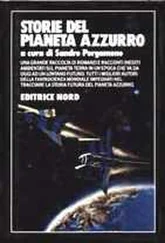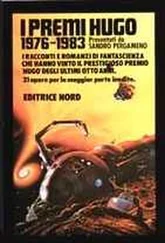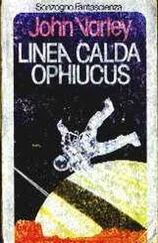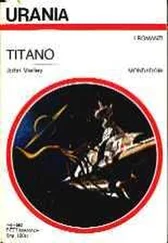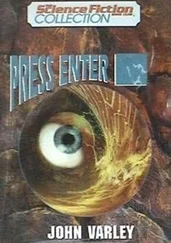But work resumed in the year 82, A.I., and went on five or six years before another snag was hit, in the form of the Lunarian Party. The loonies, or Isolationists, or (to their enemies) Appeasers, as they came to be called, had as their main article of faith that mankind should accept its lot as a conquered race and thrive as best it could on Luna and the other inhabited planets. The Invaders had reduced all the works of humanity to less than rubble in the space of three days. Surely this demonstrated, the Loonies reasoned, the Invaders were a different breed of cat altogether. We had been extremely lucky to have survived at all. If we annoyed them again they might come back and finish the job they started.
Rubbish, responded the old guard, who have since come to be known as Heinleiners. Sure they were stronger than us. Sure they had superior technology. Sure they had bigger guns. God's always on the side of bigger guns, and if we want him back on our side, we'd better build even bigger guns. The Invaders, the reasoning went, must be a vastly older race, with vastly older science. But they still shit between two… well, tentacle-heels?
This was the flaw in the Heinleiners' reasoning, said the Loonies. We didn't know if they had bigger guns. We didn't know if they had tentacles or cilia or good honest legs and arms like you and I and God. We didn't know anything . No human had ever seen one and survived. No one had ever photographed one, though you'd think our orbiting telescopes would have; they'd been looking, on and off, for two hundred years, and no one had seen them check out of the little motel known as Earth. They were weird . Their capabilities had thus far admitted of no limits. It seemed prudent to assume they had no limits.
After almost ninety years of jingoism, of rally-round-the-flag rhetoric and sheer pettifogging bombast, this sounded like a good argument to a large part of a population weary of living on a perpetual war footing. They'd been making sacrifices for nearly a century, on the theory that we must be ready to, one, repel attack, and two, rise up in our wrath one glorious day and stomp the bejesus out of those… whatever they were. Live and let live made a whole lot of sense. Stop our puny saber-rattling round the ankles of these giants, and we'll be okay. Speak softly, and screw the big stick.
Eventually all our forward listening posts in near-Earth orbit were drawn back-a move I applaud, by the way, since they'd heard nothing and seen nothing since Invasion Day. It was commanded that no man-made object approach the home planet closer than 200,000 kilometers. The planetary defense system was scaled back drastically, turned to meteoroid destruction, where at least it saw some use.
How all this affected the Heinlein was in the ban on fission and fusion explosive devices. The R.A.H. had been designed as an Orion-type pusher-plate propulsion system, to this day the only feasible drive if you want to get to the stars in less than a thousand years. What you do is chuck A-bombs out of a hole in the back, slam the door, and wait for them to go off. Do that every second or two. The shock wave pushes you.
This needs a big pusher plate-and I'm talking big here-and some sort of shock absorber to preserve the dental work of the passengers. They calculated it could reach about one-twentieth of light-speed-Alpha Centauri in only about eighty years. But it couldn't even leave L5 without bombs, and suddenly there were no more bombs. Work shut down with the main body and most of the shock absorbing system almost complete, still no sign of the massive pusher plate.
For forty years the friends of the Heinlein lobbied for an exception for their big baby, like the one granted to the builders of the first disneylands for blasting purposes. Changing political winds and economic pressure from the Outer Planets Confederation, where most fissionables were mined, and the decline of the L.P. combined to eventually bring a victory. The Heinleiners celebrated and turned to the government for funding… and nobody cared. Space exploration had fallen out of favor. It does, periodically. The argument not to pour all that money down the rathole of space when you could spend it right here on Luna can be a persuasive one to a population more interested in standard of living and crippling taxation and no longer afraid of the Invader boogeyman.
There were attempts to get it going again with private money. The perception was the whole thing had passed its time. It was a white elephant. It became a regular subject in comic monologues.
The ship still had some value as scrap. Eventually someone bought it and strapped on some big boosters and lowered it bodily to the edge of Delambre, where it sits, stripped of anything of worth, to this day.
***
The first thing I noticed about the Heinlein during my explorations was that it was broken. That is to say, snapped in half. Built strongly to withstand the shocks of its propulsion system, it had never been meant to land on a planet, even one with so weak a gravity field as Luna. The bottom had buckled, and the hull had ruptured about halfway back from the stem.
The second thing I noticed was that, from time to time, lights could be seen from some of the windows high up on the hull.
There were places where one could get inside. I explored several of them. Most led to solidly welded doors. A few seemed to go further, but the labyrinthine nature of the place worried me. I made a few sorties trailing a line behind me so I could find my way out, but during one I felt the line go slack. I followed it back and couldn't determine if I'd simply tied it badly or if it had been deliberately loosened. I made no more entries into the ship. There was no reason to suppose the girl and anyone she lived with would wish me well. In fact, if she did, she certainly would have contacted me by then. I would have to resort to other tactics.
I tried magnetic grapplers and scaled the side of the hull, trying to reach the lighted ports. When I reached them I was seldom sure I had the right one, and in any case, by the time I got there no light could be seen.
It began to seem I was chasing ghosts.
I got discouraged enough that, one Friday night, I decided to stay home for the weekend. I was getting quite big, and while one-sixth gee must make it easier to carry a baby, we're none of us as strong as our Earth-born ancestors were, and I'd become prone to backaches and sore feet.
So I decided to rent a rig and take a trip to Whiz-Bang, the new capitol of Texas. Harry the blacksmith had just got a new Columbus Phaeton-$58.00 in the Sears catalog!-and was happy to let me try it out. (Mail-order was our polite fiction for Modern-Made. There would never be enough disneys to manufacture all the items one needs for survival, there's just too many of them. Most of the things I owned had arrived on the Wells-Fargo wagon, fresh from the computer-run factories.) He hitched a dappled mare he assured me was gentle, and I took off down the road.
Whiz-Bang is in the eastern part of the disney. The interior compresses about two hundred miles worth of environment into a bubble only fifty miles wide, so before I got there I was into a new kind of terrain and climate, one where there was more rainfall and things grew better. Purely by chance I was passing through at the height of the wildflower season. I saw larkspur, phlox, Mexican hat, Indian paintbrush, cornflower, and bluebonnets. Millions and millions of bluebonnets. I stopped the horse and let her graze while I spread my blanket among them and ate a picnic lunch. I can't tell you what a relief it was to get away from the foreboding hulk of the Heinlein and the bitter white rock of the surface, and hear the song of the mockingbird.
Читать дальше

